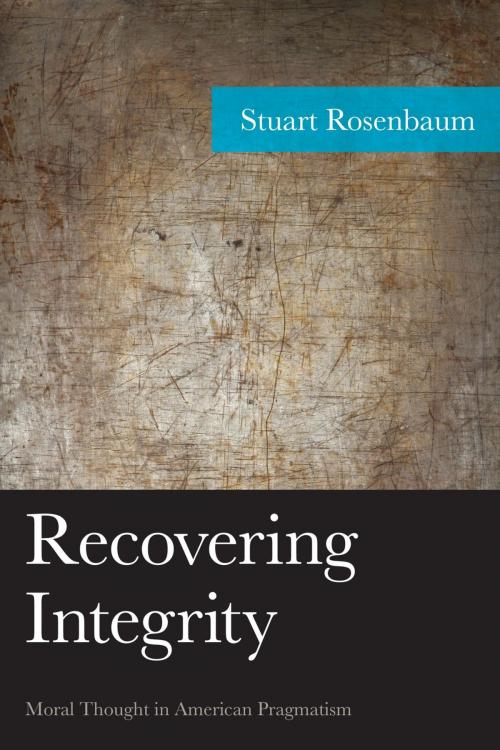Recovering Integrity
Moral Thought in American Pragmatism
Nonfiction, Religion & Spirituality, Philosophy, Pragmatism, Ethics & Moral Philosophy| Author: | Stuart Rosenbaum | ISBN: | 9781498510219 |
| Publisher: | Lexington Books | Publication: | August 13, 2015 |
| Imprint: | Lexington Books | Language: | English |
| Author: | Stuart Rosenbaum |
| ISBN: | 9781498510219 |
| Publisher: | Lexington Books |
| Publication: | August 13, 2015 |
| Imprint: | Lexington Books |
| Language: | English |
The world of moral theory finds no place for the idea of integrity. The natural intellectual home of the idea of integrity is the American pragmatist tradition. Pragmatism makes possible an account of integrity that enables it to become philosophically central in thinking about morality. The idea of integrity enables what Dewey called “a working theory of morality.” Other intellectual traditions, including those most prominent in the academic world of moral philosophy, ignore integrity because of its imprecision and its inability to deliver precise answers to questions about what is right or wrong, good or bad.
Recovering Integrity: Moral Thought in American Pragmatism explains how integrity can and should become central in philosophical thought about morality. Only within the intellectual tradition of American pragmatism may integrity achieve the intellectual stature it deserves as the central idea in ordinary moral thought.
The ideas of morally diverse communities are unified to a remarkable extent when seen through the moral lens of integrity. Diverse communities having diverse ways of life share similar understandings of morality; these similarities are important for understanding what morality fundamentally is in the human world. Philosophical efforts to explain “the nature of morality” or “the nature of right action” or “the nature of the good” founder on their ignorance of moral diversity in the real worlds of human history and culture.
The world of moral theory finds no place for the idea of integrity. The natural intellectual home of the idea of integrity is the American pragmatist tradition. Pragmatism makes possible an account of integrity that enables it to become philosophically central in thinking about morality. The idea of integrity enables what Dewey called “a working theory of morality.” Other intellectual traditions, including those most prominent in the academic world of moral philosophy, ignore integrity because of its imprecision and its inability to deliver precise answers to questions about what is right or wrong, good or bad.
Recovering Integrity: Moral Thought in American Pragmatism explains how integrity can and should become central in philosophical thought about morality. Only within the intellectual tradition of American pragmatism may integrity achieve the intellectual stature it deserves as the central idea in ordinary moral thought.
The ideas of morally diverse communities are unified to a remarkable extent when seen through the moral lens of integrity. Diverse communities having diverse ways of life share similar understandings of morality; these similarities are important for understanding what morality fundamentally is in the human world. Philosophical efforts to explain “the nature of morality” or “the nature of right action” or “the nature of the good” founder on their ignorance of moral diversity in the real worlds of human history and culture.















